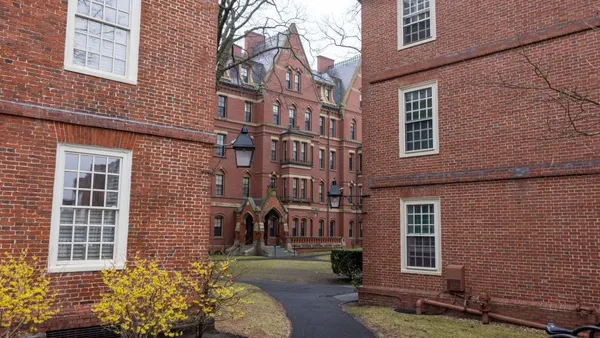Dive Brief:
- The U.S. Department of Justice is suing California over its laws allowing certain undocumented college students to pay in-state tuition rates at public colleges and receive state-administered scholarships.
- In a Thursday court filing, the agency argued that in-state tuition rates for undocumented students illegally provide benefits not offered to all U.S. citizens and asked a federal judge to rule California's laws unconstitutional.
- The lawsuit, which also names as defendants Gov. Gavin Newsom and the governing boards of California's three public college systems, marks the sixth the DOJ has brought against states with in-state tuition policies for certain undocumented students.
Dive Insight:
California is home to roughly 103,000 undocumented residents enrolled in higher education — accounting for about a fifth of some 510,000 undocumented students in the U.S. — according to the Higher Ed Immigration Portal.
Since 2001, a California law known as AB 540 has allowed students to pay in-state tuition at its three public higher ed systems if they attended a state high school for at least three years and earned their high school diploma or equivalent in California. Undocumented students must also sign an affidavit saying they have either filed an application to gain legal status or plan to once they are eligible.
A 2017 law broadened that eligibility and permits students to reach the three-year attendance threshold by combining any time spent at a California high school, community college, adult school or carceral education program.
It also allows students who completed at least three years full-time high school coursework anywhere to qualify for the waiver if they attended at least three years of their K-12 education in California.
Leaders from the state's public college systems — the University of California, California State University, and California Community Colleges — supported the expansion of the in-state tuition policy.
Both laws apply to both U.S. citizens and immigrants without legal status.
But U.S. Attorney General Pamela Bondi said in a Thursday statement that policies are "illegally discriminating against American students and families" and that California is demonstrating "flagrant disregard for federal law."
Since 1998, U.S. law has prohibited immigrants without legal status from receiving any higher education benefit based on their residency, "unless a citizen or national of the United States is eligible for such a benefit … without regard to whether the citizen or national is such a resident.”
The agency’s lawsuit is not the first time California’s in-state tuition law has faced legal opposition. One challenge to AB 540 that similarly argued the policy violated federal law made it to the California Supreme Court in 2010.
However, the court upheld AB 540, ruling it did not violate federal law because students seeking in-state tuition status did not need to be California residents.
The DOJ argued Thursday that this decision was incorrect and that federal courts should reject it.
"Allocating lower tuition rates on the basis of high school attendance is a proxy for residence," running afoul of federal law, the agency said.
Using the same argument, the DOJ lawsuit also targets a 2011 law permitting AB 540-eligible undocumented students to receive state-administered scholarships and aid and a law passed in 2014 establishing a student loan program for them.
Gaining an in-state tuition waiver for California can have big cost implications for prospective students, as the state's public colleges charge some of the highest out-of-state tuition premiums in the U.S., according to the College Board.
The University of California published tuition and fees for out-of-state students who started in 2025-26 were $37,602 more a year than for their in-state counterparts.
At the University of California, Berkeley, that means out-of-state, full-time undergraduates who first enrolled this fall would pay $55,080 if they did not receive financial aid or scholarships — more than double the $17,478 their in-state counterparts would pay sans aid.
Even with aid and institutional scholarships, out-of-state students saw a stark difference. U.S. News & World Report estimated that the average total cost of attendance at UC Berkeley for those receiving need-based aid was $16,636 for in-state students and $66,625 for those from outside of California.
The Cal State system’s published tuition and fees for out-of-state are also higher than for in-state students. Its 23 campuses charge a base rate of $6,450 for in-state undergraduate tuition and fees for the 2025-26 academic year. This year, out-of-state students pay at least $444 more per credit.














